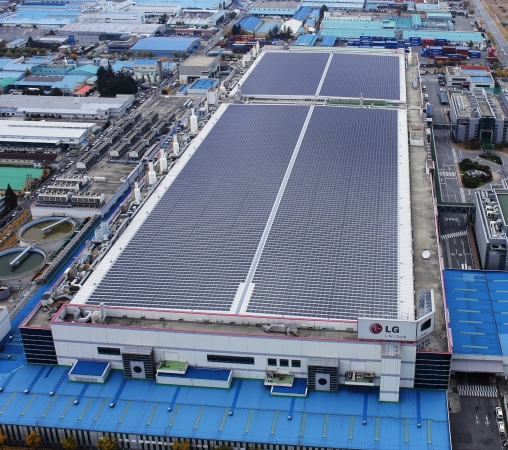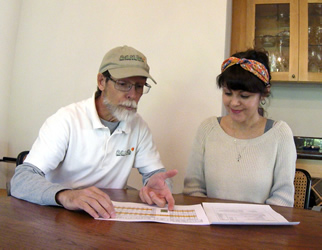Welcome to the
Run on Sun Monthly Newsletter

In this Issue: |
January, 2016
Volume: 7 Issue: 1
Who is Paying You to Go Solar in 2016?
Federal Tax CreditBeyond a doubt, the most significant incentive for going solar is the 30% federal tax credit. Previously set to expire at the end of this year, the federal solar tax credit was extended late last year, continuing at the present 30% through 2019. The credit applies to solar installations in every utility's territory, so no matter where you live in the U.S., this credit applies to you. (NB: this is a tax credit, not an income deduction, so you need the tax "appetite" to take full advantage of this incentive - check with your tax advisor.) For residential clients, the basis for the credit is the full cost of your solar project, less any rebate that you might receive from the utility. Commercial clients, who must declare any rebate as income, do not need to deduct their rebate from the system cost when calculating the basis. Utility RebatesOnce common everywhere, utility rebates are going the way of the dodo—with one or two notable exceptions. We have rank ordered the local utilities below, based on the reliability of their rebate program. Pasadena Water & PowerThe big winner, again and by far, is the solar rebate program operated by our own Pasadena Water and Power. Year in and year out, PWP offers rebates to its customers in a transparent and consistent manner - something that cannot be said of any of its neighboring utilities. As of this writing, PWP is offering a rebate of $0.45/Watt for both residential and commercial customers, and a rebate of $0.90/Watt to non-profit customers (who cannot take advantage of the federal tax credit). Alternatively, PWP also offers a performance-based incentive that is paid out over two years based on the actual production of the system. Residential and commercial customers are paid 14.4¢/kWh, whereas non-profit customers are paid 28.8¢/kWh. Los Angeles Department of Water and PowerLADWP offers a rebate, if you have the stamina to receive it. Vexed with the most bureaucratic process to be found this side of Orwell's 1984 dystopia, applying for and receiving a rebate from DWP often feels like a reward for a life well spent. That said, LADWP is currently offering rebates of $0.30/Watt to residential customers, $0.40/Watt to commercial, and $1.15/Watt to non-profits. Just don't hold your breath. Burbank Water & Power and Glendale Water & PowerThese two municipal utilities often feel like one and the same given their similar approach to rebates - which is to say, now you see 'em, no you don't. Unlike their neighbor to the east, neither BWP nor GWP is able to maintain a rebate program throughout the year. Instead, both open their rebate windows on or about July 1st (i.e., the start of their fiscal year) and then hand out money until it is gone, at which time the window slams shut until the following July 1. Burbank's program operates under a lottery, which last year opened on July 1 and was exhausted by August 15. In addition, BWP imposes restrictions on the azimuth and pitch of rebated systems, despite their being no technical justification for doing so. Glendale's program is even less transparent, and the installation/rebate process is outlined in a 23-step ode to inefficiency. We will revisit both of these program in mid-June to provide what guidance we can to the residents of these two cities. Azusa Light & WaterThe "Solar Partnership Program" in Azusa is fully subscribed. There is a wait list that solar-hopeful customers can get on in the hope that at some point there will be rebate funds available - with no guarantees that there ever will be. AnaheimThe Anaheim Solar Incentive Program was fully subscribed as of October 1, 2015 and is now closed, with no published plans to revise the program in the future. Southern California EdisonSCE's rebates, which were part of the larger, California Solar Initiative, have expired and no new funds are anticipated. Of course, SCE customers still have the highest electricity rates around, which provides its own–albeit perverse–incentive to Go Solar! |
“Once common everywhere, utility rebates are going the way of the dodo…”
Get your copy of
Commercial Solar:
Step-by-Step
from
Run on Sun
Founder & CEO
Jim Jenal

Now available on Amazon.com
in both
Print & Kindle versions.
Bonus - Buy the Print version…
Get the
Kindle version for Free!
Commercial Solar:
Step-by-Step
from Run on Sun
Founder & CEO
Jim Jenal

Now available on Amazon.com
in both Print & Kindle versions.
Get the Kindle version for Free!
Help Us Spread the News!


We use Angie's List to assess whether we're doing a good job keeping valued customers happy. Please visit AngiesList.com in order to grade our quality of work and customer service.
Tripling Down - LG to Triple NeON Production by 2020Run on Sun's solar module maker of choice, LG Electronics, has announced that it will invest the equivalent of $435 million to triple its production of N-type solar modules, sold under the brand name NeON.
This is great news for LG's end customers - like the clients of Run on Sun. N-type panels, like the LG315 panels currently being installed by Run on Sun, have an enhanced performance warranty, produce more of their rated power when hot, and suffer significantly less Light-Induced Degradation over conventional solar modules. The significant increase in production offers the hope of lower prices for these premium modules over time, making top-of-the-line solar affordable for "mainstream consumers." But you don't have to wait to get your hands on these best-in-class modules - we are installing them today! Just give us a call and let's show you how with LG solar modules, Life is Good! |
The Run on Sun Approach to Solar...Without SalesmenI like to think there are many ways in which Run on Sun stands out in the ever growing sea of solar contractors. But there is one particular feature which every client seems to comment on - our non-sales approach. I can't count the number of times I have sat down at a kitchen table to discuss how solar works and whether it makes sense for that home, to hear remarks on how different the experience is compared to other solar pitches they've heard. The thing is, when someone from Run on Sun comes to your home to do a solar assessment, that person is not a sales person. We don't have outside sales agents and we definitely don't employ any "hard sell" tactics. As a small company, every employee is a solar professional who has taken the time to educate themselves on the intricacies of the industry. And perhaps more importantly, every Run on Sun employee truly takes pride in helping people go solar, for the right reasons.
In fact, our goal when we walk into a solar assessment is not to get a contract signed. Rather, the goal is to assess the solar potential accurately and make sure the client feels they have any and all questions answered about the process of going solar. And for clients who turn out to be great solar candidates, obviously we aim to help them save money, achieve some energy independence, increase the value of their property, and enjoy the peace of mind that using green energy provides! During an assessment we work with clients to determine what the best solar system would be to meet their real energy needs as well as what would be their best possible investment. Then we take the time to explain exactly how we made the determinations that we did. Sometimes, as some of our Yelp! Reviewers have shared, that assessment leads to the unfortunate conclusion that solar is a poor investment for the client and we make sure to explain why. Perhaps external factors make the upfront cost too high such as re-roofing or electrical panel upgrades, or maybe the shade of that lovely oak tree would make any solar output too limited. Maybe your usage needs are just too low to justify all of the fixed costs to install. In these cases, the sad reality is that there are solar companies who would gladly install a system anyways and lock you into a contract which could cost you incredible amounts of money with little to no return. As consumers ourselves, we'd rather make our own educated decisions especially regarding large purchases and investments. Being pressured into something is seriously a turn off. If you are influenced more by hard sales tactics, we likely won't be the ones putting solar on your roof as there are plenty of other companies who have motivated salesmen knocking on your door. But at least we can go home feeling good about the work we do every day. So if you're interested in going solar but the thought of dealing with salesmen is revolting, never fear! Run on Sun would be happy to walk you through the process today. |



